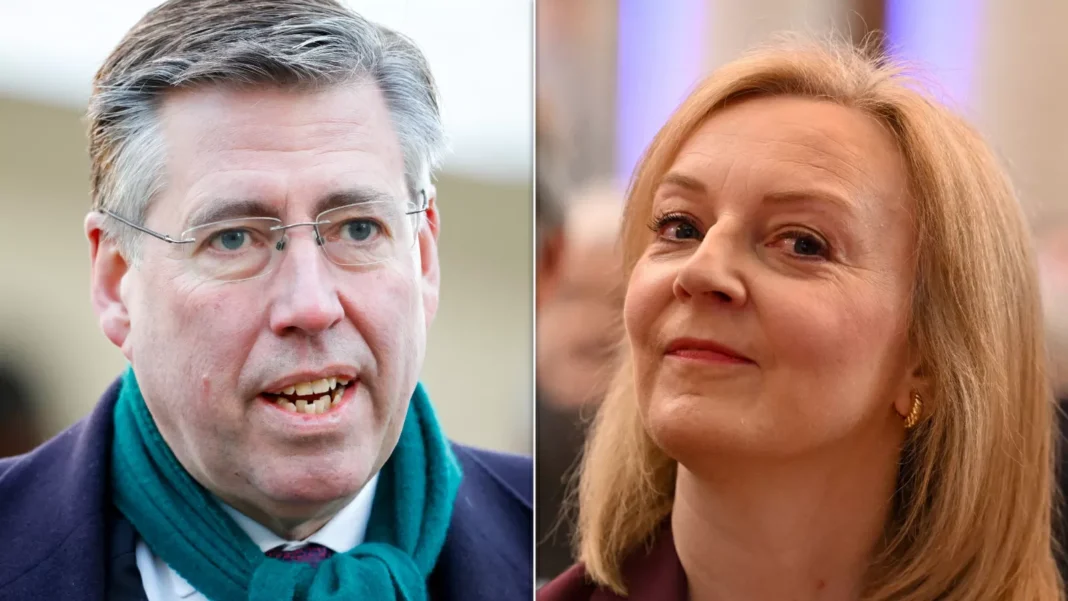Graham Brady, the chair of the 1922 Committee, has recently called for a change in how the Conservative Party selects its leaders when in government. This has sparked a debate within the party, with many questioning the current system and its effectiveness.
As the chair of the backbench 1922 committee, Brady is responsible for receiving letters of no confidence from other Tory MPs who wish to oust their leader. He has held this role for the past few years, during which the party and the country have been led by Boris Johnson, Liz Truss, and Rishi Sunak.
Speaking to students at Durham University last Thursday, Brady expressed his belief that if a Conservative Prime Minister were to leave office, it should be up to the MPs to decide who takes their place. Currently, the grassroots Conservative organizations have the power to choose their successor. This is how Liz Truss first came into office, even though Rishi Sunak had more support from MPs.
In a leaked recording to The Telegraph this week, Brady stated that it was “crazy” for Tory members to have the power to choose a Prime Minister. He pointed to former Tory leader Lord Hague’s reform to the selection process in 1997, where he changed the process so that Tory MPs choose two potential contenders from among their ranks, and the members then select their preferred choice.
Brady went on to say, “I’m the first chairman of the ’22 committee to operate [this system] while we’ve been in government. And so my view is that that was a mistake to introduce that rule. I think it’s fine to have the party members voting on the leader when you’re in opposition.”
Shortly after Liz Truss was appointed as Prime Minister over Rishi Sunak by the narrowest margin since the system was introduced, Lord Hague also stated that the members should no longer pick Tory leaders.
Brady continued, “In a parliamentary system where you could only remain Prime Minister if you enjoyed the confidence of your party in parliament, it seems crazy that we now have different mechanisms in which the parliamentary party – that Conservative members of parliament can get rid of the leader by voting no confidence, but then the leader is supplied by the party members.”
He expressed his preference to remove the vote for the members when the party is in government. However, Brady acknowledged that this change is unlikely to happen as it would require a supermajority vote from the party members, which is highly unlikely.
These comments come more than a year after Liz Truss dramatically resigned as Prime Minister, having spent a total of just 49 days in office. Rishi Sunak was then elected unopposed as the new Tory leader, meaning the vote did not go to the party members.
With local elections taking place on Wednesday, it is expected that the Conservatives will face a tough result. This could potentially lead to a wave of Tory rebels calling for Rishi Sunak to step down ahead of the general election later this year.
However, Brady later clarified to The Telegraph that he was not advocating for a change in leadership with his comments. He simply believes that the current system needs to be reevaluated and potentially changed for the betterment of the party.
This debate over the selection process for Conservative leaders highlights the importance of having a strong and effective system in place. As the party continues to face challenges and changes, it is crucial to have a process that ensures the best candidate is chosen to lead the country.
In recent months, Liz Truss has faced criticism for her role in endorsing former US President Donald Trump and for her handling of the mortgage rate rises. However, she has remained steadfast in her beliefs and has refused to apologize for her actions.
Despite these challenges, Truss has also made significant achievements during her time in office, including securing trade deals with countries such as Japan and Australia. She has also been a strong advocate for free trade and has worked to strengthen the UK’s position on the global stage.
As the Conservative Party looks towards the future, it is important to consider the views of senior members like Graham Brady and to have open discussions about potential changes to the leadership selection process. This will ensure that the party continues to evolve and adapt to the changing political landscape, ultimately leading to a stronger and more united party.



